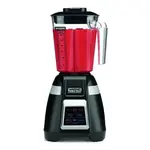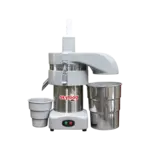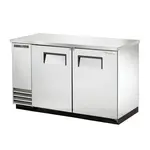
How to Start a Mobile Bar Business: A Comprehensive Guide
- Understanding the Mobile Bar Business Model
- Creating a Mobile Bar Business Plan
- Securing Funding for Your Mobile Bar Business
- Handling Legalities and Licenses
- Purchasing and Outfitting Your Mobile Bar
- Essential Equipment for a Mobile Bar
- Hiring and Training Staff
- Marketing Your Mobile Bar Business
- Managing Operations and Growth
- Challenges and Tips for Success
- Conclusion
The mobile bar business is an exciting and profitable venture that has gained popularity in recent years. This business model caters to events like weddings, corporate gatherings, and private parties, offering flexibility and lower overhead costs compared to traditional brick-and-mortar bars. If you’re looking to start a mobile bar business, this guide will walk you through the key steps, from planning and funding to marketing and legalities.
Understanding the Mobile Bar Business Model
A mobile bar business revolves around offering on-the-go beverage services. This could be in a retrofitted van, trailer, or cart that’s equipped to serve a variety of drinks at different locations. The key benefits of this model include:
- Flexibility: You can choose when and where to operate, catering to different types of events.
- Lower Overhead Costs: Unlike traditional bars, you won’t have the same rent, utilities, and staffing costs.
- Scalability: You can start small and expand your fleet of mobile bars as your business grows.
Creating a Mobile Bar Business Plan
A well-thought-out business plan is essential to guide your operations and attract investors. Your mobile bar business plan should include:
- Business Concept: Define your unique selling proposition. Will your bar specialize in craft cocktails, wines, or a specific theme like a tiki bar?
- Market Analysis: Identify your target market. Are you focusing on weddings, corporate events, or public festivals? Understand the competition and market demand.
- Marketing Strategy: Develop strategies to reach your target audience. This could include social media marketing, partnerships with event planners, and SEO for your website.
- Financial Projections: Estimate your startup costs, revenue, and profitability. This will help you understand the financial viability of your business and secure funding.
Securing Funding for Your Mobile Bar Business

Starting a mobile bar business requires capital, and there are several ways to secure funding:
- Personal Savings: This is the most straightforward option, but not always feasible for everyone.
- Business Loans: Consider small business loans from banks or online lenders. Ensure you have a solid business plan to present to potential lenders.
- Investor Funding: If your business concept is unique and scalable, you might attract investors. Be prepared to offer a share of your business in return for their investment.
- Crowdfunding: Platforms like Kickstarter or GoFundMe can help you raise funds from a large number of small contributors. This approach also helps in building an early customer base.
Handling Legalities and Licenses
Legal compliance is critical when starting a mobile bar business. Here’s what you need to do:
- Register Your Business: Choose a business structure (LLC, sole proprietorship, etc.) and register your business name.
- Obtain Necessary Permits: Depending on your location, you may need various permits, including health permits and a business license.
- Liquor License: This is the most important permit for a mobile bar. The type of liquor license you need can vary based on your state and the nature of your business. Ensure you comply with all local and state alcohol regulations.
- Insurance: Protect your business with general liability insurance, liquor liability insurance, and vehicle insurance for your mobile bar.
Purchasing and Outfitting Your Mobile Bar
Your mobile bar is the heart of your business. Whether it’s a trailer, cart, or van, your mobile unit should be both functional and appealing. Consider the following when purchasing and outfitting your bar:
- Size and Mobility: Your mobile bar should be compact enough for easy transport but spacious enough to store supplies and serve guests efficiently.
- Functionality: Equip your bar with refrigeration, storage for glasses and ingredients, and essential bar tools. The layout should enable smooth operations during busy events.
- Aesthetic Appeal: Your bar’s appearance is crucial for attracting clients. It should align with your brand, whether that’s vintage, modern, rustic, or themed.
Essential Equipment for a Mobile Bar

Equipping your mobile bar properly is crucial to delivering a high-quality service. Here’s a list of essential equipment you’ll need:
- Refrigeration Units: Depending on your bar's size, you might need a small fridge or a larger refrigeration unit to keep drinks cold.
- Portable Sink: A portable handwashing station is essential for hygiene and compliance with health regulations.
- Cocktail Tools: This includes shakers, strainers, muddlers, jiggers, bar spoons, and other tools necessary for mixing drinks.
- Glassware: Depending on your menu, you'll need an assortment of glassware, including wine glasses, cocktail glasses, and pint glasses.
- Ice Storage: An insulated ice bin or portable ice maker ensures you have enough ice for the duration of events.
- POS System: A portable point-of-sale system will help you manage transactions and keep track of sales efficiently.
- Lighting and Decor: To create the right ambiance, portable lighting, signage, and decorations matching your brand can enhance the guest experience.
- Storage Solutions: Adequate storage for ingredients, garnishes, and backup supplies is vital to keep everything organized and accessible.
Hiring and Training Staff
Exceptional customer service is a key differentiator in the mobile bar industry. As such, hiring and training the right staff is crucial:
- Recruitment: Hire bartenders who are not only skilled but also enthusiastic about mobile bartending. Look for individuals with experience in event bartending, as they are usually adept at working in various settings.
- Training: Regular training is essential to maintain service quality. This includes training in mixology, customer service, and safety protocols. Additionally, make sure your staff understands the legal responsibilities associated with serving alcohol.
Marketing Your Mobile Bar Business
Effective marketing can make or break your mobile bar business. A well-rounded marketing strategy should include:
- Branding: Develop a strong brand identity, including a logo, color scheme, and unique value proposition. Your branding should reflect the experience you want to offer.
- Social Media: Use platforms like Instagram, Facebook, and Pinterest to showcase your mobile bar in action. Share high-quality photos, behind-the-scenes content, and client testimonials.
- Website and SEO: Create a professional website with details about your services, pricing, and booking information. Optimize your site for search engines to increase visibility.
- Partnerships: Collaborate with wedding planners, event coordinators, and venues to increase your reach. These partnerships can be a valuable source of referrals.
- Local Events: Participate in local festivals, fairs, and markets to gain exposure. Offering free samples or promotional discounts can help attract potential clients.
Managing Operations and Growth
Once your mobile bar business is up and running, efficient management is key to sustaining and growing your venture:
- Event Planning: Develop a streamlined process for booking and managing events. This includes confirming event details, preparing inventory, and coordinating staff.
- Financial Management: Keep a close eye on your finances. Use accounting software to track income, expenses, and profitability. Regularly review your financial performance to identify areas for improvement.
- Customer Feedback: Gather and analyze customer feedback to improve your services. Happy customers are more likely to refer you to others, which is essential for business growth.
- Scaling: As your business grows, consider expanding your fleet of mobile bars, hiring additional staff, or offering new services such as cocktail classes or themed events.
Challenges and Tips for Success
Starting a mobile bar business comes with its challenges, but with the right strategies, you can overcome them:
- Seasonality: Demand for mobile bars can be seasonal. Diversify your offerings to include indoor events or consider renting out your bar for off-season use.
- Competition: Stay ahead of competitors by continuously innovating your services. Keep up with trends in the beverage industry and offer unique, customized experiences.
- Logistics: Transporting your bar and setting up at different locations can be challenging. Ensure you have reliable transportation and a checklist to streamline your setup process.
Conclusion
Starting a mobile bar business is an exciting entrepreneurial journey that offers flexibility, creativity, and potential for profitability. By carefully planning your business, securing the necessary licenses, investing in a functional and appealing mobile unit, and executing a solid marketing strategy, you can successfully tap into the growing demand for mobile beverage services. With dedication and innovation, your mobile bar business can become a sought-after service in the event industry, delivering memorable experiences to clients wherever they may be.





